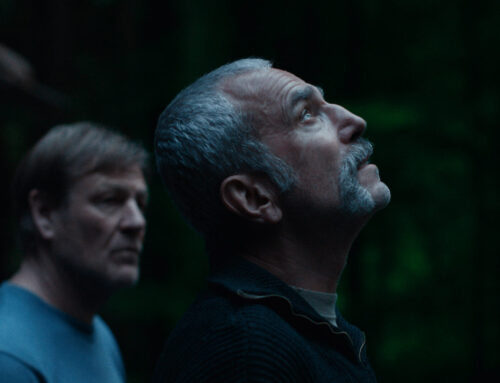I’ve been without power for three days and could barely wait to post this– I finally saw one of the BEST MOVIES out there right now: MARGIN CALL which portrays a long hard day in the life of an investment banking house — not just any day– the day in September 2008 when all the financial houses came tumbling down, taking their markets and most of the greedy little piggies inside with them. The movie is brilliantly written, and rendered with the authority that only a seasoned cast can deliver: Kevin Spacey, Jeremy Irons, Demi Moore, Stanley Tucci, Paul Bettany, Simon Baker.
The film begins with a massive firing– people armed with clipboards march silently in, move from to office to office, choose a target, and take someone out. I’ve lived it first hand. The person is “let go,” ordered to gather up his/her belongings, and is escorted to the sidewalk holding his/her career in a cardboard box. On this day, it happens to Stanley Tucci who plays his firm’s (read Lehman Brothers or some such financial institution) risk assessment manager. But it seems he has stumbled onto something troubling that he hasn’t quite cracked, and as the elevator door is closing on his exit, he tosses a flashdrive to a young co-worker and says– “you might want to take a look at this– and be careful.”
What the co-worker discovers is that this slick, willfully blind behemoth of a firm– has one foot in the grave: it’s about to be buried under trillions of dollars of worthless mortgage backed securities, and when it goes under, it will take everyone and everything it touches, with it. I’m no expert on the ins and outs of mortgage backed securities, but the movie brings clarity to the layman. Kevin Spacey– the big local boss looks at the maze of numbers on the computer screen, and asks the whiz kid who figured it out to explain it to him– because he “never could read the numbers.” Later, Jeremy Irons– the big corporate exec who has helicoptered in, asks the same whiz kid to explain it to him, simply, “as if he were talking to a golden retriever. ” This would be funny– if it weren’t so infuriatingly tragic: THESE are the guys running the place, but they are–by their own admission–salesmen, with barely an inkling of the toxicity they’re spreading– until, that is, the monetary shit hits the fan. Then their venality will take your breath away.
The film is precisely calibrated by first time director J.C. Chandor for subtle tension and maximal clarity. The writing is simply brilliant, and captures the mad scramble at every level: financial, moral, social, personal. The film examines both the microcosm and the macrocosm of the catastrophe, the human drama, and the thematic ripple effect of this calamity forward and back. The film ties the impulses which lead to the collapse to the hard-wired drives of human beings long dead and yet to be born. As Irons character– like some fabulously dessicated potentate– smugly utters, “…it’s always been the same percentage of … fat cats and starving dogs… We can’t help ourselves.” The film asks the hard questions: “What is the right thing to do? And for whom?” This is a true story and a fable all in one.
So if you’re wondering what that OCCUPY WALL STREET movement is all about, it’s all about this: the financialization of the culture, a system that concentrates wealth in the hands of a few who ” have their fingers on the scales, tipping the balance”; these few don’t build anything — they transact. Chandor lets his camera float over the vast cityscape from above, computer screens reflected in the corporate windows looking down on a metropolis about to be buried. Somewhere down below, in the dark, Spacey’s character– Hamlet like– is cozying up to a grave; it’s his best friend, his dog, who has died. But here, Spacey is doing the digging. As his character– caught in the crosshairs of his own ethics and instincts– scuccinctly puts it –at least he will have something to show for his work.






Leave A Comment
You must be logged in to post a comment.